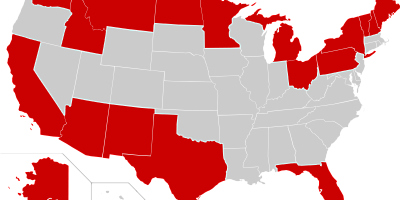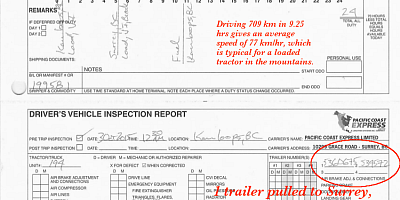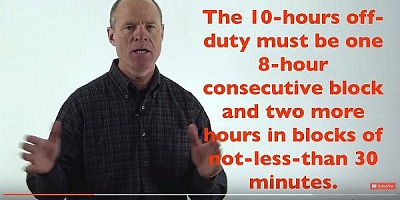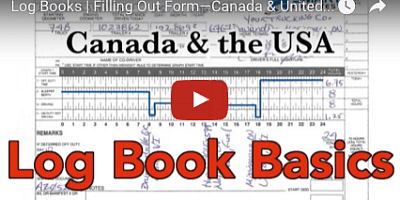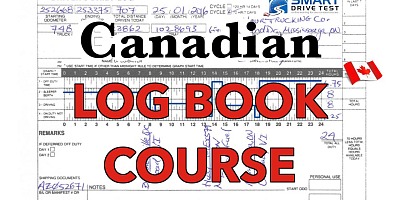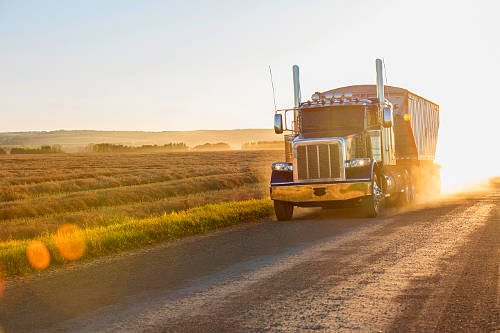You might be exempt from keeping a logbook in Canada.
Closed Caption
Updated Jan 2021
Introduction
Hi there smart drivers, Rick with Smart Drive Test talking to you today about logbook exemptions in Canada.
I had a comment from Elroy - he was looking at the Ministry of Transportation of Ontario's Drivers' Handbook and wanted to know if he had to meet all of the criteria for being exempt from a logbook.
I had a look at it and I said yes, in fact you do.
So there's a little more to it than just running beyond a 160 kilometers of your home terminal.
Don't Work the Day for Free:: DOT Weigh Scale Checklist |
||
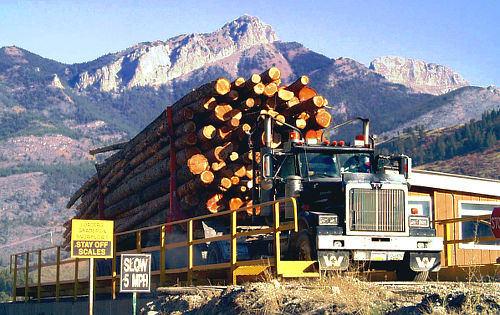
• DID YOU KNOW? :: Bus & truck drivers are the only drivers that have their own police force (DOT, CVSE, MTO, etc.);• SMART :: There's a lot of paperwork you must produce for authorities at the weigh scale;• SELF-CONFIDENCE :: Bring all paperwork in one hit & impress the diesel bears! |
||
Because in most cases, it's you that gets the fine...NOT the company! |
There's some other information that you need to know as well.
So what I thought I'd do is make a video, go over those rules and the paperwork and the records that you have to keep to be exempt from keeping a log book.
And shed some more light on that.
Now as well, know that when you're exempt from keeping a log book, there still has to be paperwork in place, and the employer is required to keep paperwork.
But the employer is going to pass that paperwork down onto you as the driver to maintain those records.
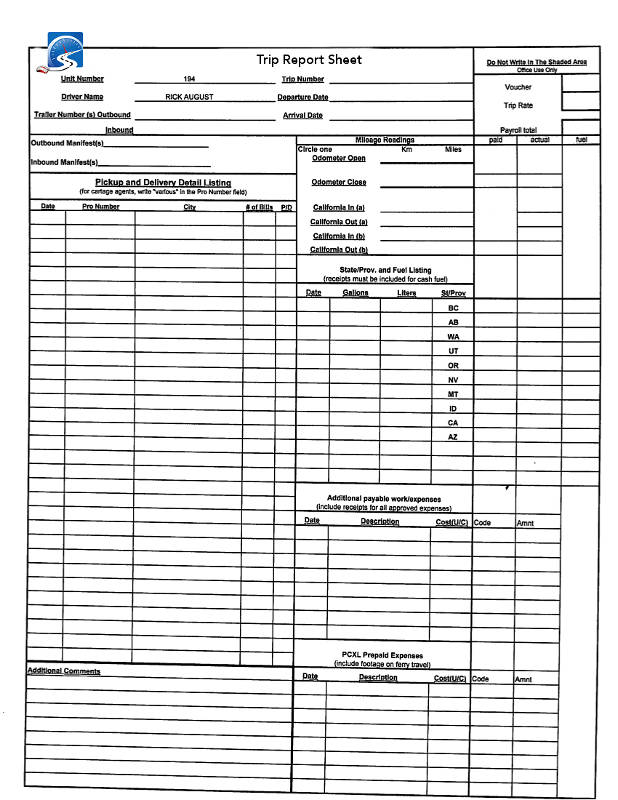 Even though you're exempt from keeping a logbook, you'll still need to maintain a daily trip sheet.So that's going to come in the form of a trip sheet.
Even though you're exempt from keeping a logbook, you'll still need to maintain a daily trip sheet.So that's going to come in the form of a trip sheet.
So what we're going to do today, is we're going to talk about the information you need to keep in lieu of a logbook and the rules and criteria that you have to meet to be exempt from a logbook.
We'll be right back with that.
Stick around.
Exemption Rules - Canada
Hi there smart drivers, welcome back.
Rick with Smart Drive Test talking to you today about logbook exemption and the criteria for not having to keep a log book in Canada for commercial drivers.
I'm going to use the rules out of Ontario.
Now the rules in Ontario are pretty much widespread across Canada.
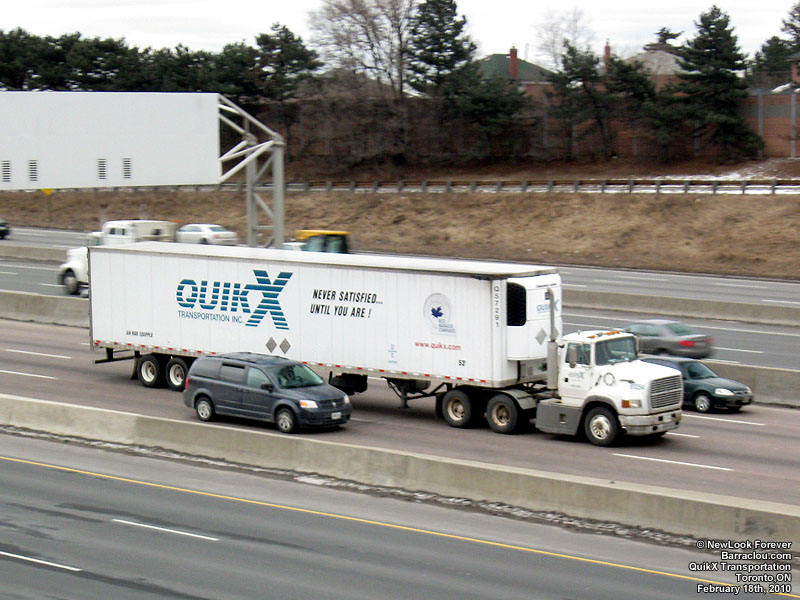 Most day cab trucks are not going to require you to keep a logbook because you'll be within 160km of your home terminal.
Most day cab trucks are not going to require you to keep a logbook because you'll be within 160km of your home terminal.
It's going to be the same rules for all drivers across Canada, regardless of where you are.
So the three criteria for not having to keep a log book in Canada:
1) the first criteria is that you have to be operating within a 160 kilometers (100 miles) of your home terminal;
2) next criteria is that you have to start and finish at the same place every day.
So if you are working out of Milton, Ontario, you have to start in Milton and you have to go back to Milton.
That's the second rule, and the
3) third rule is that you can't work for more than one company in a day.
So for example, if you go to work for ABC trucking in the morning, in the afternoon you go work for a dump truck company or an excavating company - you can't do that if you do that.
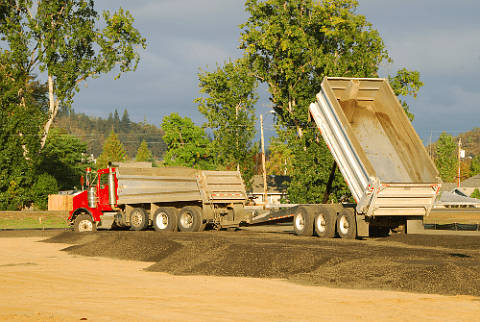 If you're working for more than one company in a day, then you are required to keep a logbook.
If you're working for more than one company in a day, then you are required to keep a logbook.
If you're working for more than one carrier in a day, you have to keep a log book.
Employer to Keep Records
Now if you don't keep a log book, your employer has keep records for you in lieu of the logbook.
And the records that have to be kept have to include the date, the driver's name, and the location from which you're working.
That's the first thing you have to do.
As well, it has to indicate which cycle you're working in, whether you're working in Cycle #1 or Cycle #2.
And the duty status lines and the number of hours that you're working in each duty status line.
Cycle #1 or #2
Now obviously if you're working within a 160 kilometers of your home terminal you're going to be driving a day cab - most likely!
You're not likely going to be driving a sleeper berth, so it's only going to be off-duty, driving, and on duty, not driving time that you're going to have to keep track of.
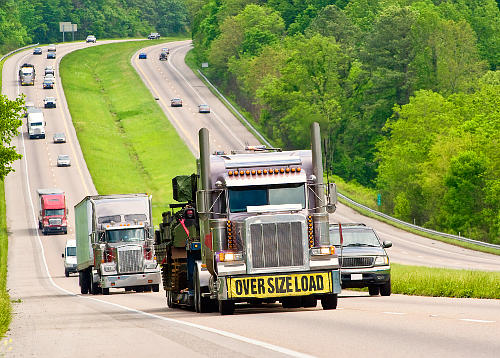 If you're driving more than 160km from your home terminal, you'll most likely be driving a truck fitted with a sleeper birth.
If you're driving more than 160km from your home terminal, you'll most likely be driving a truck fitted with a sleeper birth.
You have to keep track of that for each day that you're working.
And finally you're going to have to keep track of that for the amount of time that you're working in your work cycle.
Now most drivers, and I recommend this highly that you work 70 hours in seven days-- Cycle #1.
There's really no point working in Cycle #2, as I've said before.
In Cycle #2, when you accumulate 70 hours on duty you, have to take 24 hours off-duty as per the hours of service regulations.
Well, if you're going to take 24 hours off-duty, you might as well take another 12 off--36 hours--and reset Cycle #1 and carry on with a full set of 70 hours again, as opposed to 50 hours in cycle 2.
Trip Sheet
And if you want more explanation of that, have a look at the hours of service regulations and you can figure it out, but I strongly recommend just working on Cycle #1.
Now for figuring out your work cycle--the number of hours that you're working in your work cycle--line three and four--driving & on duty, not driving--are going to be the hours that you're going to calculate for your work cycle in determining that you're not in violation of the 70 hours in seven days.
When you're working on Cycle #1.
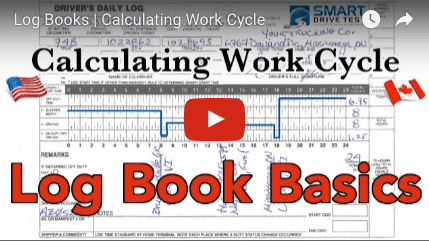 Calculating the number of hours you worked in a cycle is the most important component of your logbook. CLICK the image for more detailed information.The other thing about in lieu of the logbook--that you're not keeping a log book--the employer is not going to keep those records for you.
Calculating the number of hours you worked in a cycle is the most important component of your logbook. CLICK the image for more detailed information.The other thing about in lieu of the logbook--that you're not keeping a log book--the employer is not going to keep those records for you.
You're going to have to figure out those hours and you're going to have to keep track of that hours because the employer is going to pass that down to the driver in the shape of a trip sheet.
And trip sheets just simply going to be the paperwork that you need to keep in lieu of your log sheet.
And keeping track of your work hours in lieu of your log sheet.
And again, authorities--the MTO in Ontario, the CVSE (Commercial Vehicle Safety & Enforcement) in western Canada, and the Maritimes the authority's down (CVE-Commercial Vehicle Enforcement) there--have the right to go into your employer and look at those records - those work records.
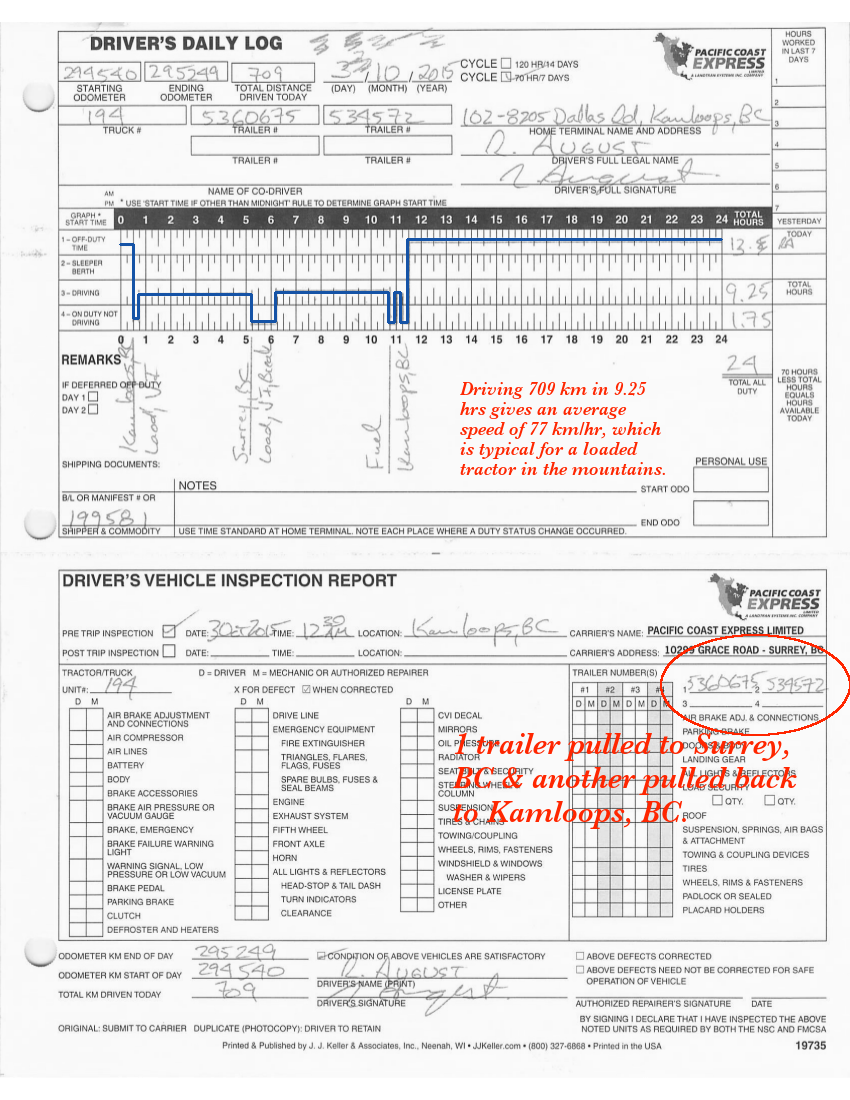 Authorities will go into a work place and do an audit on their paperwork. It's important for you to fill out your paperwork correctly.
Authorities will go into a work place and do an audit on their paperwork. It's important for you to fill out your paperwork correctly.
So know that that you could be audited potentially on the number of hours that you're working, even if you're working in a day cab.
So know that your work hours can be audited, even if you're running a day cab and there's criteria that you need to follow for keeping paperwork in lieu of a logbook.
Conclusion
So in conclusion exemptions from logbooks in Canada.
The three rules are:
1) you have to be working in within a 160 kilometers of your home terminal;
2) you have to start and finish at the same location every day;
3) and you cannot work for more than one carrier in a day.
Those are the top three rules and again there's paperwork that has to be kept on the part of your employer.
Logbooks move to police the hours that a driver can work. This monitoring moves to reduce the number of fatigued drivers on the road.
That paperwork has to include the driver's name, the date, and the location from which they're working.
The duty status hours that they're working.
Each duty status and finally the daily tally and also the tally for the work cycle that you're working in.
So that's the paperwork that you have to keep too be exempt from keeping a log book.
So it's really not really a trade-off in terms of paper if you're trying to get out of paperwork.
It doesn't really work out because the employer is going to pass that down to you as the professional driver.
So know that you've got to keep paperwork and the authorities may or may not audit that paperwork to know how many hours are working, even if you're not keeping a log book.
Question for my smart drivers:
Do you not keep a log book, and what paperwork do you keep instead of your logbook?
Leave a comment down in the comment section there - all that helps out the new drivers coming into the industry.
 Keep your logbook up to date to avoid getting a fine and working the day for free.I'm Rick with Smart Drive Test.
Keep your logbook up to date to avoid getting a fine and working the day for free.I'm Rick with Smart Drive Test.
Thanks very much for watching.
If you like what you see here share, subscribe, leave a comment down in the comment section there - all of that helps us out.
As well, hit that thumbs up button.
If you're working towards your higher class commercial license, check out the videos below - lots of great information for you to be successful in that endeavour of getting a higher class license.
And if you're working towards a job as a truck or bus driver, check out the videos on the channel - lots of great information for the day-to-day tasks that you'll be doing as a truck or bus driver.
If you're on a mobile device, check out the cards in the upper right-hand corner - all the links are up there.
And when you're up there, hit that subscribe button.
Thanks again for watching.
Good luck on your road test.
And remember, pick the best answer not necessarily the right answer.
Have a great day.
Bye now.


